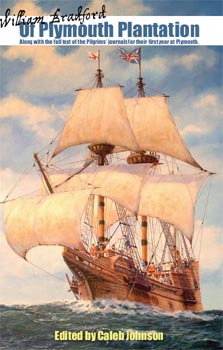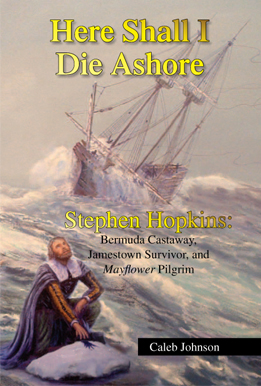Most of the Pilgrims felt that the bodies of girls were too weak to make the voyage on the Mayflower, and felt that girls were not strong enough to survive the hardships of building a colony. Because of this, most parents decided to leave the girls behind in England or Holland, and would send for them later once everything was built and more comfortable. Elder William Brewster brought his sons Love and Wrestling, but left behind his daughters Patience and Fear. Thomas Rogers brought his son Joseph, but left behind his daughters Elizabeth and Margaret. Francis Cooke brought his son John, but left behind his daughters Jane and Hester. Richard Warren had five daughters, Mary, Ann, Sarah, Elizabeth and Abigail, ranging in ages from 2-10 years old, but he left them all behind. And Degory Priest also left behind his daughters Mary and Sarah.
Despite the general belief that girls were weaker, 11 girls, ranging in ages from 1 through 17, did make the voyage on the Mayflower with their families. And perhaps more surprisingly, young girls proved to have the strongest bodies of all: the first winter, 72% of the women died, 50% of the men died, 36% of the boys died, but only two girls (18%) died.
The youngest girl on the Mayflower was Humility Cooper, just about 1 year old. Her mother had died, so she came on the Mayflower in the custody of her aunt and uncle, Edward and Ann (Cooper) Tilley. Her cousin, 16-year old Henry Samson, rounded out the family. Edward Tilley's brother John also brought his wife Joan, and their daughter, 13-year old Elizabeth Tilley. Elizabeth Tilley may have had a strong friendship with another girl, Desire Minter. Desire's father William had died in Leiden, Holland, about 1618, so she was put into the custody of John Carver, who brought her to America with him. Elizabeth would eventually name her first daughter Desire, presumably in honor of her friend.
Mayflower passenger Stephen Hopkins was the only passenger to have been to America before. Having made the voyage to Jamestown, he knew better than anyone what to expect with the voyage and in the New World. He had no problem bringing his entire family, including the girls. His eldest daughter was named Constance. She was 14-years old. Stephen's 2-year old daughter Damaris also came. His wife Elizabeth was also pregnant, and gave birth during the voyage to a baby boy they named Oceanus.
The Allerton family also decided to bring all their daughters. Isaac and wife Mary Allerton brought their daughters Remember and Mary: Remember was about 6 years old, and Mary was about 4 years old. James Chilton, the oldest passenger on the Mayflower at age 64, brought his wife and youngest daughter, 13-year old Mary Chilton, leaving his adult children behind in England and Holland.
Two other girls were on the Mayflower under sad circumstances. Ellen More, age 8, and Mary More, age 4, were on the Mayflower because their father did not want them any more: they were apparently children from his wife Katherine, and her lover Jacob Blakeway. After "father" Samuel More discovered they were not truly his children, he and wife Katherine filed for divorce. Even though he claimed not to be the father, he won custody of the children, and had them sent off to America (against their mother's wishes) with the "honest and religious" men, claiming they would have a better life outside of England where they would not suffer the social disgrace of being bastards (not born to a married couple). Perhaps it should not be surprising, then, to discover that the abandoned Ellen and Mary were the only two girls to die the first winter.
The oldest girl on the Mayflower was Priscilla Mullins, who was about 17-years old. She came on the Mayflower with her father William Mullins, a shoe and boot dealer, her mother Alice, and her brother Joseph. Her entire family, except for herself, died the first winter.
No girls died during the Mayflower's voyage, but one boy (William Button) did. After arrival in November 1620, the girls lived on the Mayflower while the men went out exploring for a place to settle. The Mayflower sailed across to Plymouth in late December, and the men and older boys started to build the colony. The women and girls remained living on the Mayflower for much of the time while the Colony was being constructed in January, February, and March.
The Mayflower departed back for England on April 5, after the terrible first winter was over. The first winter had left most of the girls orphaned. Elizabeth Tilley's parents John and Joan were dead, and her aunt and uncle Edward and Ann Tilley were dead as well. Mary Chilton's father and mother both died. The Allerton girls lost their mother. And Desire Minter lost her adopted family of John and Katherine Carver just a couple weeks after the Mayflower departed. Only the Hopkins family appears to have survived the first winter unscathed.
Humility Cooper and Desire Minter both would eventually return to England, after their adoptive parents died. Damaris Hopkins died sometime before 1627. All the other girls survived to adulthood, married, had families of their own, and have numerous descendants living today. Priscilla Mullins counts among her descendants such people as President John Adams; Marilyn Monroe; Vice President Dan Quayle; poets Henry Wadsworth Longfellow and William Cullem Bryant; and War of the Worlds director Orson Welles. Elizabeth Tilley counts among her descendants such notables as Presidents Franklin D. Roosevelt and George W. Bush, actor Humphrey Bogart, Mormon church founder Joseph Smith, and poet Ralph Waldo Emerson.






